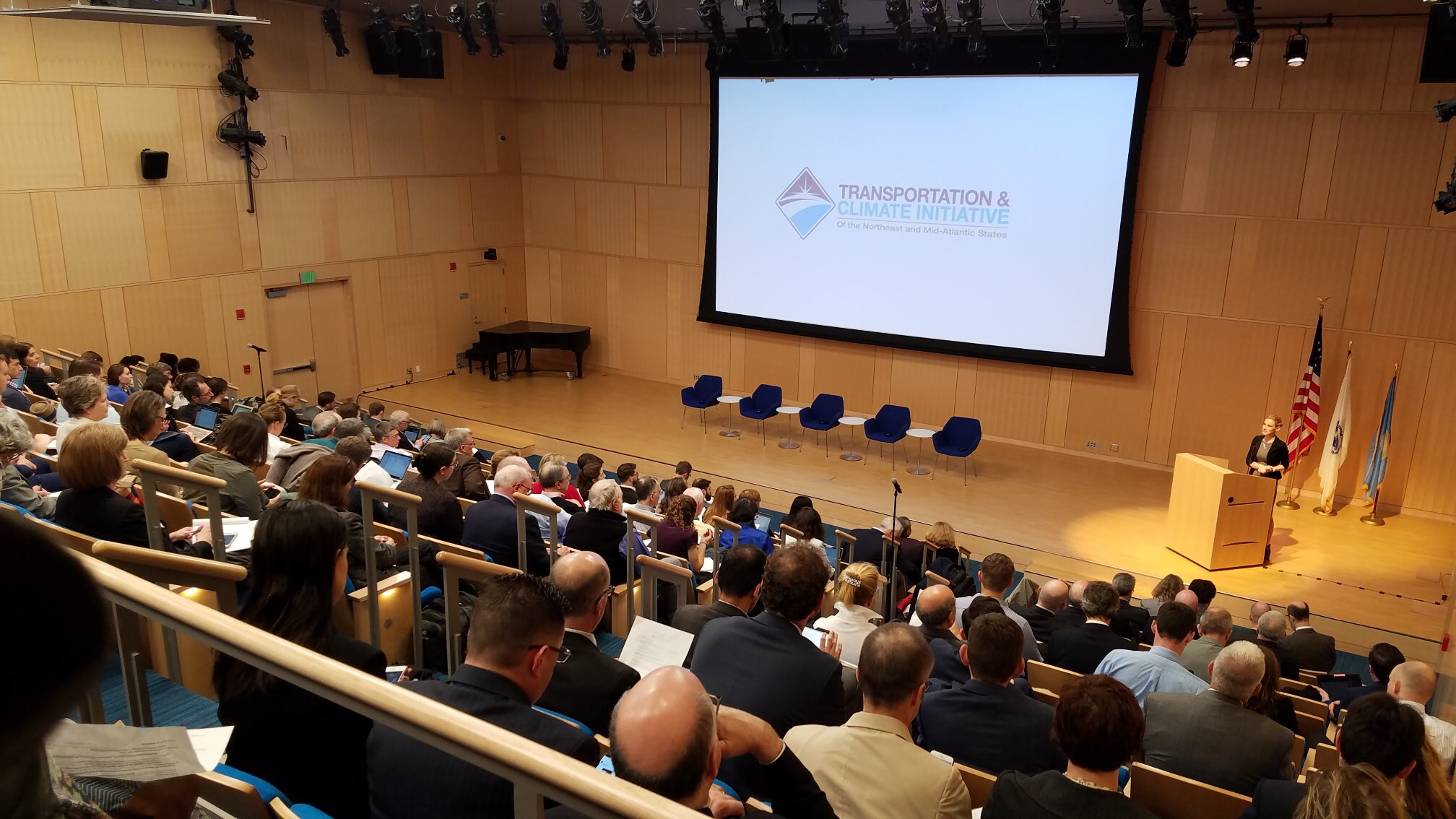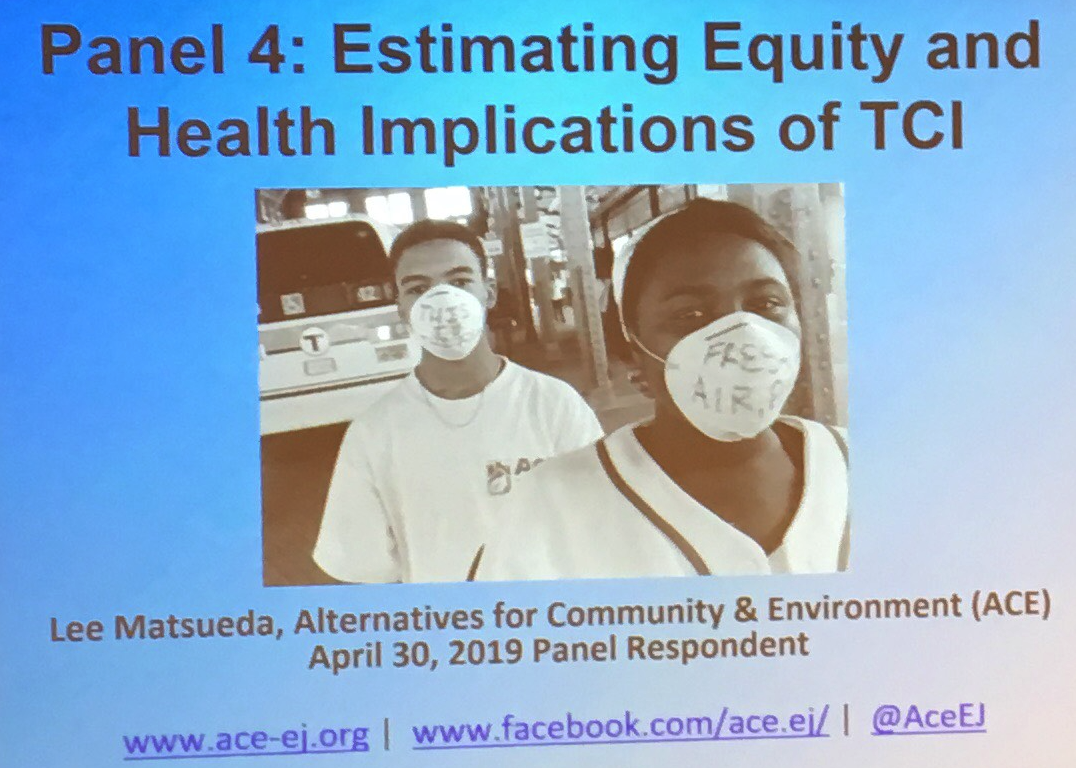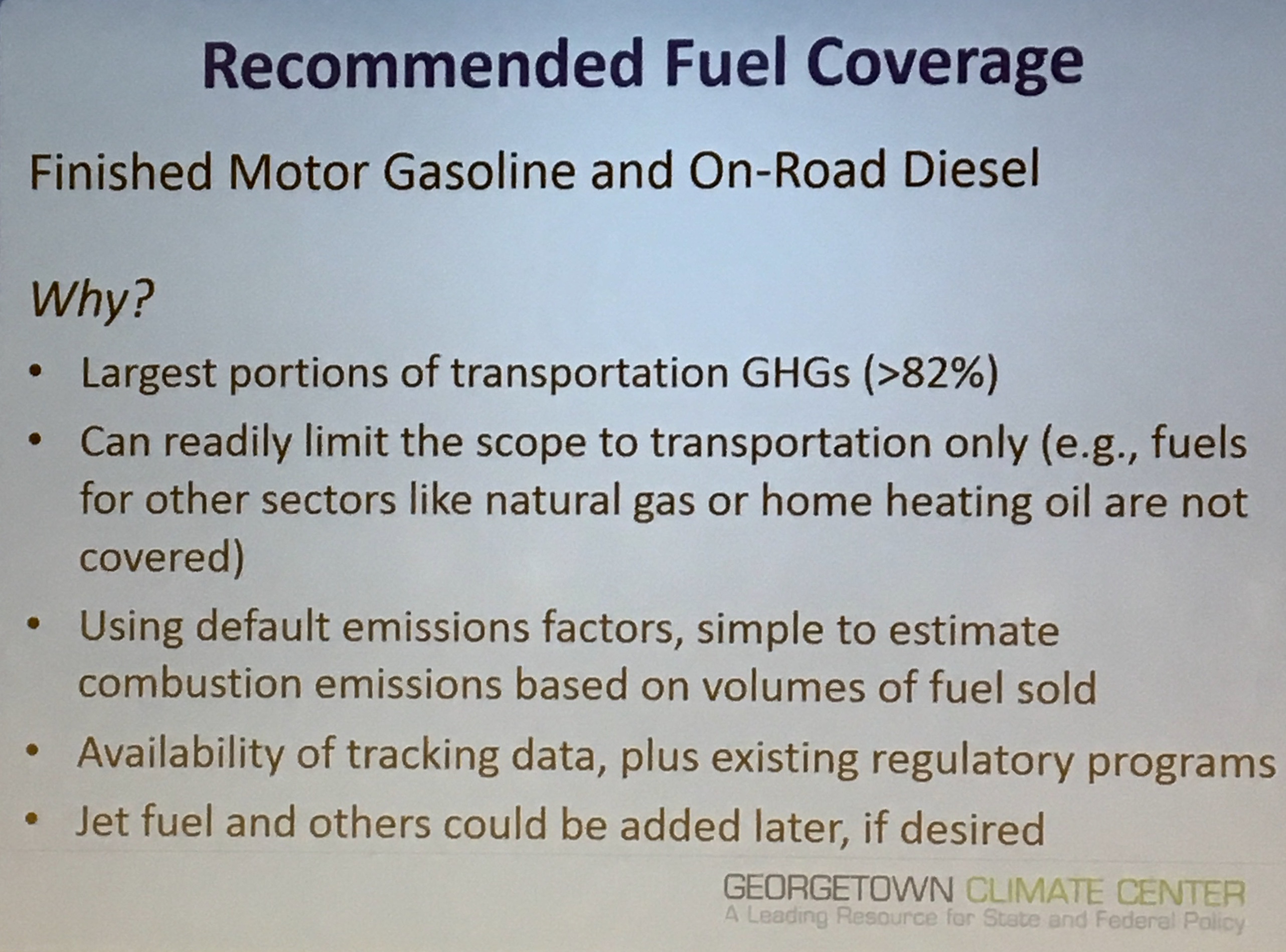The Transportation & Climate Initiative (TCI) is gaining steam. As part of a series of workshops that are free and open to the public, on April 30th, the nine states (plus Washington, D.C.) participating in TCI brought together about 200 regional leaders, advocates, academics, and members of the public at the Boston Public Library to discuss how to make transportation in the northeast and mid-Atlantic cleaner, more efficient, and more equitable.
 While technical in nature, this event had passion and energy to match the urgency of the challenges we face. You can watch the livestream recording of the proceedings at the event page. TCI is coordinated by the Georgetown Climate Center.
While technical in nature, this event had passion and energy to match the urgency of the challenges we face. You can watch the livestream recording of the proceedings at the event page. TCI is coordinated by the Georgetown Climate Center.
TCI is moving ahead, thanks to leadership from Governor Baker and fellow Governors across the region, including their commitment in December 2018 to work together on designing a regional, market-based solution to transportation carbon emissions by the end of 2019. The states seem to be aligning on a “cap and invest” regulatory structure similar to the regional program already in place for electricity generation, known as the Regional Greenhouse Gas Initiative (RGGI). Participating states would require transportation fuel importers and wholesalers to purchase permits or allowances to offset the pollution that fuel creates. The proceeds from those sales would be invested in cleaner transportation systems.
The April 30 workshop featured several expert panels with the goal of bringing stakeholders across many states up to speed, while encouraging questions and dialogue across a range of perspectives.
Here's what we learned.
 There were strong views expressed on the topic of equity, including by T4MA Executive Committee member Lee Matsueda of Alternatives for Community and Environment. It is not enough to create a market mechanism for reducing carbon emissions that create disproportionate harm; in designing cap and invest, we must focus on the needs of communities that have also suffered from historic transportation inequity.
There were strong views expressed on the topic of equity, including by T4MA Executive Committee member Lee Matsueda of Alternatives for Community and Environment. It is not enough to create a market mechanism for reducing carbon emissions that create disproportionate harm; in designing cap and invest, we must focus on the needs of communities that have also suffered from historic transportation inequity.
 Our transportation status quo perpetuates deep inequities. The data shows that low-income communities and communities of color suffer the most from transportation-related air pollution, and we need to bring urgency and equity in our policy responses.
Our transportation status quo perpetuates deep inequities. The data shows that low-income communities and communities of color suffer the most from transportation-related air pollution, and we need to bring urgency and equity in our policy responses.
 It's well understood that we have a climate crisis, and that the transportation sector is the largest source of carbon emissions. Reducing emissions from motor vehicles is a necessity if we are to meet targets for mitigating climate change.
It's well understood that we have a climate crisis, and that the transportation sector is the largest source of carbon emissions. Reducing emissions from motor vehicles is a necessity if we are to meet targets for mitigating climate change.
 There are enormous economic gains to be realized by a reduction in carbon emissions and co-pollutants such as nitrous oxide, and by investment in public transit and active transportation. The goals of cap and invest are achievable, and have been demonstrated in Quebec and California, both of which have cap-and-invest systems for transportation.
There are enormous economic gains to be realized by a reduction in carbon emissions and co-pollutants such as nitrous oxide, and by investment in public transit and active transportation. The goals of cap and invest are achievable, and have been demonstrated in Quebec and California, both of which have cap-and-invest systems for transportation.
The transportation fuels supply stream in the Northeast and Mid-Atlantic region is complex, but there are practical options for points of regulation that would add minimal economic burden. The experience of the California Air Resources Board is helpful in understanding how another region has addressed the regulation of transportation-based carbon emissions.
Statistical modeling of a potential cap-and-invest program is important to understand the projected effects of this program, and the use of models and tools will be essential to ensure learning by the TCI states. These effects include GHG emission reductions, substantial impacts on health, changes to traffic and congestion, local economic outcomes, and differences between urban and rural communities.
Where do we go from here? An upcoming workshop on May 15 in Newark, NJ, will focus on equity considerations for TCI. Further workshops and public engagement are planned in the coming months. These are exciting steps in a process that we hope will lead to significant carbon reduction, better air quality, and improved transportation options for tens of millions of Americans from Virginia to Maine.
-
 @malagodi tweeted link to this page. 2019-05-12 21:59:59 -0400The Transportation & Climate Initiative Comes to Massachusetts https://www.t4ma.org/tci_ma?recruiter_id=3746432Reply · Retweet · Favorite
@malagodi tweeted link to this page. 2019-05-12 21:59:59 -0400The Transportation & Climate Initiative Comes to Massachusetts https://www.t4ma.org/tci_ma?recruiter_id=3746432Reply · Retweet · Favorite


